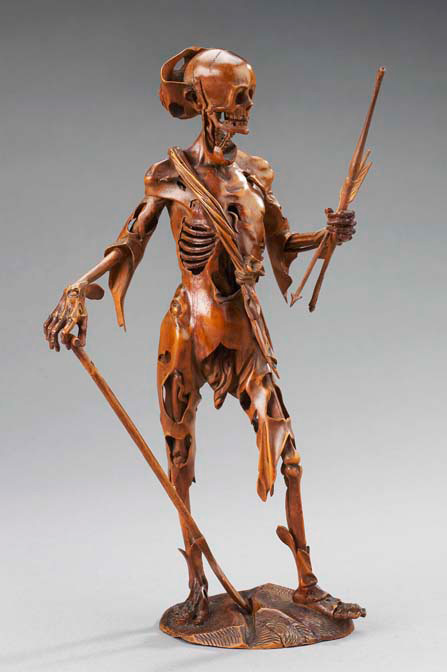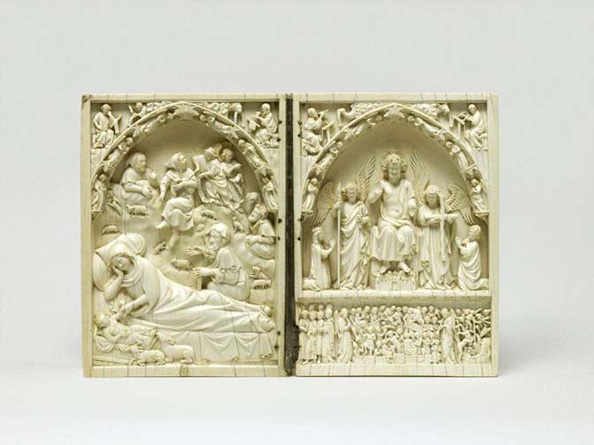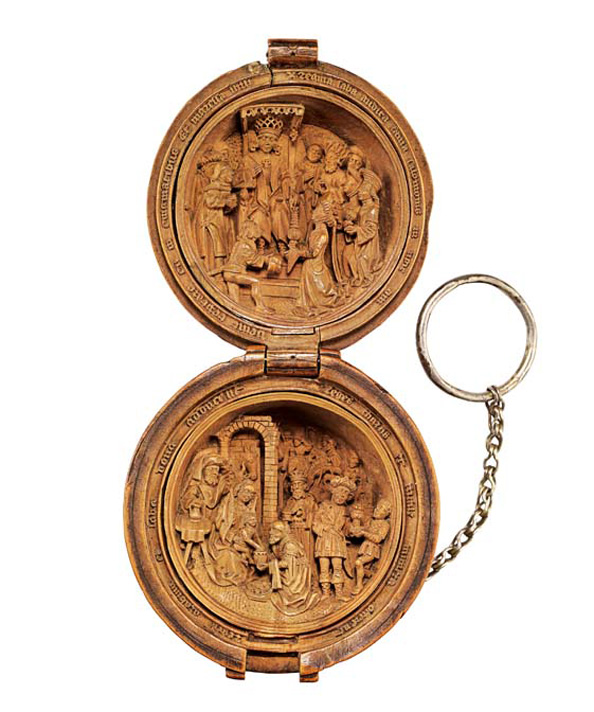 |
| White Christmas |
 |
| Death Triumphant German (Bavaria?) around 1670 lindenwood 24.0 x 13.5 x 7.5 cm The Thomson Collection © Art Gallery of Ontario |
 |
| Diptych: The Nativity and The Annunciation to the Shepherds; The Last Judgment around 1300 France (Paris) ivory, traces of polychrome and gilding The Thomson Collection © Art Gallery of Ontario |
I am not sure if man had created God by the time they were painting on caves or if God came later. For most of western art history a divine deity or deities have played a significant role in the creation of art. I find divinity in nature and am comfortable experiencing feelings of awe and wonder of the beauty before me with out needing outer worldly explanations for my emotions. I have always been curious about the souls of people who died before the creation the old and or new testaments. Admittedly I haven't been curious enough to do any research to find an answer to that question. Do they get a free pass because God didn't bother to inform them that they were supposed to live and think a certain way. Or the people of that didn't get word that God spread the message.
It's frightening to see at home and abroad the role religion is playing on the world stage. Fundamentalists from many faiths are spreading there venomous beliefs around the world. Too many people have died because for this. Is it not time for mankind to embrace reason and move beyond superstition. To live in a world free from hate based on ancient beliefs of superiority supported by divine revelations. We are all brothers and sisters on this earth and we need to stop killing each other. I know moving to a world beyond religion will not end all killing and hatred. But it would be a good first step. Step outside and go for a walk, go to an art gallery and experience the divine with out a Deity.
Christmas is approaching and so is the end of this blog post (Hallelujah!). I have the pleasure of facing my German/British heritage. So here is some German music and British pottery.

This is Mary Wondrausch an English slipware potter. She is 87 and is apparently still working according to this website Mary Wondrausch. Her book on slipware is an interesting introduction to this traditional approach to pottery in England. And if you are interested in making it is full of tips for the application of slip to your pots and has glaze and slip compositions. I love that it is full of lead glaze recipes. So maybe the glaze recipes are not as helpful for most people. Overall it is still a great read. Check out an excerpt of her book here. Here is another site with some traditional and contemporary work. And a video of her at work. Museum of English Rural Life
Symphony No. 9 in D Minor, Op. 125 "Choral" IV.Presto - Allegro Assai - Choral Finale (Ode to Joy)
by Ludwig van Beethoven







Religion and art were often intertwined because the Church was one of the laregest patron of the arts and demanded religious themes in the pieces they ordered. People also felt that mundane, everyday tasks and life were not worthy of recording, an artist's subject should be more sublime and inspiring.
ReplyDeleteAs far as the lost souls, it states in the Bible that when Jesus died on the cross, he descended into hell and released the souls and their suffering. After that time, people had to seek out the "truth" and follow a good life. Spreading the word became very important, because those who did not follow the teachings of the church were basically doomed. It is important to remember that the books of the bible were edited and many were omitted, so bascially we are following the word of a selected few extremists.